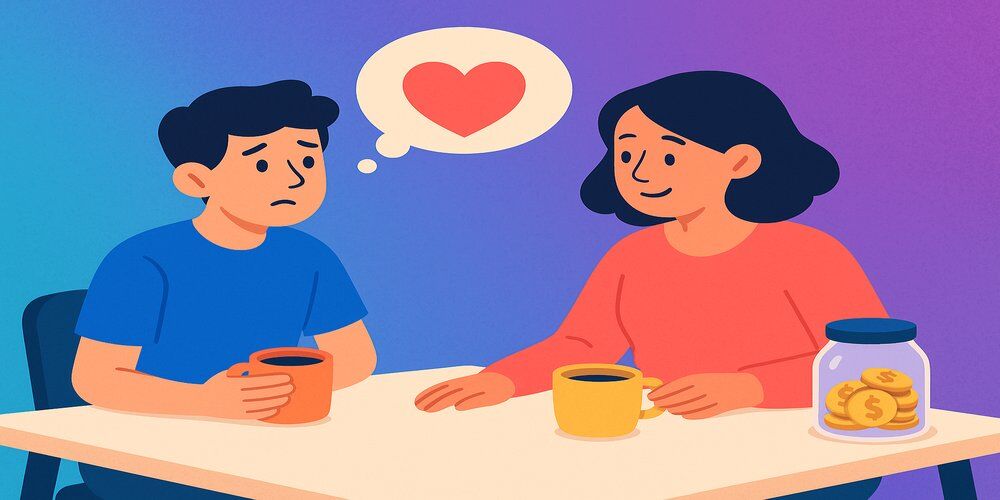Why the CDC’s ‘Free Mind’ Campaign Matters for Our Teens
It feels like every week brings another grim headline about teen mental health. Instead of shrugging and saying “kids these days,” America’s top public health officials just rolled out a new initiative that any parent should pay attention to. The Centers for Disease Control and Prevention’s “Free Mind” campaign is a first‑of‑its‑kind effort to talk frankly about the messy overlap between mental health challenges and substance use. Rather than wagging a finger at teenagers, it acknowledges that anxious, depressed or stressed teens may experiment with alcohol or pills to cope. The problem is that those quick fixes make anxiety, sadness and irritability worse and even impact memory and mood.
If you’re picturing a lecture, think again. The campaign includes graphic novels, videos and conversation starters to help families have honest, judgement‑free chats. It gives teens a language for saying, “I’m tempted” and parents the tools to respond without losing their minds. The research behind the effort reminds us that nearly 40 percent of U.S. high‑school students reported persistent feelings of sadness or hopelessness in 2023. Around a quarter drank alcohol in the past month and nearly one in five used marijuana. That data might feel miles away from your kitchen table in Cairo, but the pressures on teens are universal. Social media isn’t just addictive; its highlight reels make everyday struggles feel unbearable. The news cycle is a horror show. Peer pressure travels at the speed of Wi‑Fi.
The good news is that connection really is prevention. The CDC’s toolkit encourages parents to educate themselves, listen without judgment and stay compassionate. It advises creating a “judgement‑free zone” and getting help early when a teen shows signs of trouble. Those ideas echo advice from Middle Eastern parents who are already balancing tradition and TikTok boundaries. In Dubai, one father let his daughter download TikTok only after she learned how algorithms work. An Egyptian mother invites her kids to watch YouTube together so she can talk through what they see. No one is locking phones in a safe; they’re building trust and resilience.
We can’t shield our teens from every bad influence, but we can teach them to recognise when something feels wrong and ask for help. Whether you’re dealing with a teen who insists he’s “fine” or one who’s withdrawing, the answer isn’t a lecture—it’s a conversation. The “Free Mind” campaign is a reminder that our job isn’t to control every screen or monitor every mood; it’s to show up, listen and guide. That’s how we help our teens keep their minds free.
ليه حملة «فري مايند» مهمة لمراهقينا
كل يوم بنسمع عن قصص مقلقة عن الصحة النفسية عند المراهقين، بس بدل ما نقول «جيل دلوقتي مش فاهم»، الجهات الصحية في أميركا أطلقت حملة جديدة لازم كل أب وأم ياخدوا بالهم منها. حملة «فري مايند» من مركز السيطرة على الأمراض والوقاية منها هي أول مبادرة بتتكلم بصراحة عن العلاقة المعقدة بين التوتر النفسي واستخدام الكحول أو الأدوية. مش الهدف إلقاء محاضرة للشباب، بل الاعتراف إن اللي بيحس بقلق أو اكتئاب ممكن يلجأ للحل السهل، لكن المشكلة إن الحل ده بيزود القلق والحزن ويأثر على الذاكرة والمزاج.
لو متخيل إن الحملة عبارة عن نصائح مملة، فأنت غلطان. في قصص مصورة وفيديوهات وأدوات تساعدك تفتح حوار مع ولادك من غير ما تخسر أعصابك. الإحصائيات بتقول إن حوالي أربعين في المية من طلبة الثانوي في أميركا حسوا بحزن أو يأس مستمر في ٢٠٢٣، وإن ربعهم شربوا كحول في آخر شهر. الأرقام دي بعيدة عن بيتك في القاهرة؟ يمكن. بس الضغوط اللي بتحسها المراهقين عندنا هي نفسها. التيك توك والإنستجرام مش بس بتسحب الوقت، هي بتخلي الحياة اليومية شكلها أسوأ. الأخبار المخيفة كل يوم بتزود الإحساس بالقلق.
الخبر الحلو إن الاتصال هو أهم وقاية. الحملة بتشجع الآباء إنهم يثقفوا نفسهم، ويسمعوا من غير حكم، ويكونوا متعاطفين. وبتنصح بإنشاء مساحة آمنة للحوار وطلب المساعدة بدري لو ظهرت علامات خطر. النصائح دي بتشبه اللي بنسمعه من أهلنا في الشرق الأوسط اللي بيحاولوا يوازنوا بين العادات وتطبيقات التواصل. أب في دبي سمح لبنته تحمل تيك توك بعد ما فهمت إزاي الخوارزميات بتشتغل. أم مصرية بتشوف يوتيوب مع ولادها وبتتكلم معاهم عن اللي بيشوفوه. محدش بيحبس الموبايل في الدرج، لكنهم بيبنوا ثقة وصمود.
مش هنقدر نمنع كل تأثير سلبي، لكن نقدر نعلم أولادنا يحسوا إن في حاجة غلط ويطلبوا المساعدة. سواء ابنك بيقول «أنا كويس» أو منعزل، الحل مش محاضرة – الحل حوار. حملة «فري مايند» بتفكرك إن دورك مش بس تراقب كل شاشة، بل إنك تكون موجود وبتسمع وبتوجه. كده بس نساعد ولادنا يحافظوا على عقولهم حرة.
مصادر:
[1] تقرير من قناة ABC News يشرح حملة «فري مايند» الجديدة التي أطلقتها مراكز السيطرة على الأمراض والوقاية منها لتوعية المراهقين بعلاقة الصحة العقلية باستخدام المخدرات.
[2] صفحة حملة «فري مايند» الرسمية على موقع CDC تتحدث عن تأثير المخدرات على القلق والحزن والذاكرة.
[3] صفحة «معلومات للآباء ومقدمي الرعاية» توفر نصائح حول كيفية إجراء محادثات صادقة وداعمة مع المراهقين.







Leave a Reply
You must be logged in to post a comment.